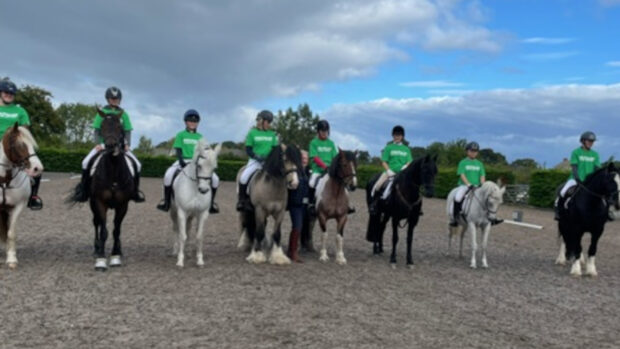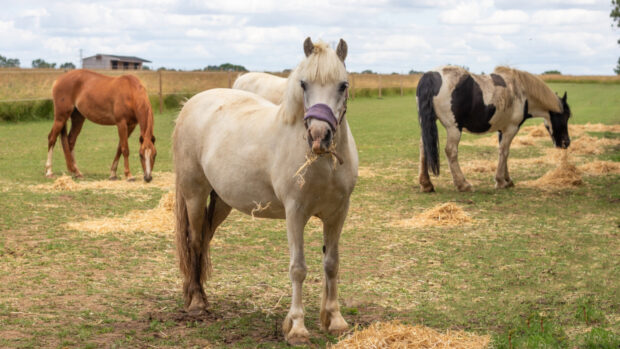An owner whose horse survived equine grass sickness is raising awareness of the often-fatal condition.
Yvonne Maclean’s 17hh Hanoverian gelding, Malbec, was diagnosed with grass sickness last August.
His weight dropped from 750kg to 596kg in just six weeks.
“It was horrendous,” Ms Maclean told H&H.
“He wouldn’t eat at all — we were syringe feeding him every hour for the first two-and-a-half weeks.
“He was very unwell for 14 weeks and we were unsure if he would survive.”
The then five-year-old gelding’s condition gradually improved and he has made a full recovery.
Ms Maclean, who is based in the Scottish Highlands, wanted to raise money for the Equine Grass Sickness Fund (EGSF) and organised a show, which took place last month (22 August).
The show included showjumping, showing, mounted games and fancy dress classes.
| Popular articles |
Local people and businesses donated trophies and raffle prizes for the show and talks on equine grass sickness and laminitis were given by Ross-shire vet Douglas Swaffield.
More than 100 combinations took part and over £5,200 was raised for the charity.
Ms Maclean also aims to raise awareness of the equine grass sickness vaccine trial.
A rider at the show, who is currently nursing a two-year-old filly through grass sickness, signed up 10 horses for the trial, which is being conducted by the Animal Health Trust.
“I have been overwhelmed by the support we have had,” added Ms Maclean.
“We have decided to make this an annual event due to so many people wanting to get involved.”
A rise in cases of grass sickness
Earlier this year H&H reported on a rise in the number of cases of grass sickness.
There is relatively little known about the condition, however, it is most prevalent from April until September.
Vets believe grass sickness is caused by a toxin produced by clostridia bacteria, the same bacteria that, in different circumstances, can cause botulism. They affect the nervous system.
Signs of the condition include abdominal pain, poor appetite, patchy sweating, increased heart rate, increased saliva and depression.
For more information visit: https://www.justgiving.com/Yvonne-Maclea





